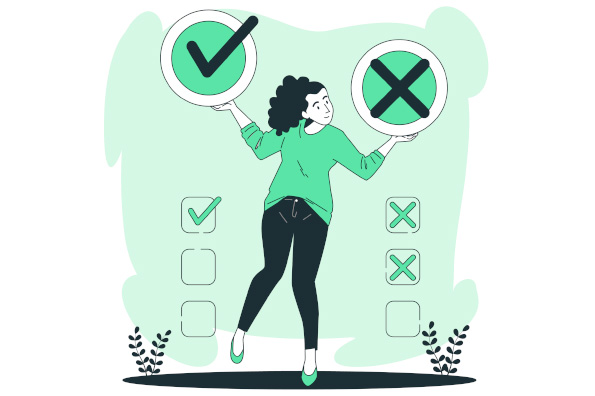How to Steal Big Firm Clients as a Solo Attorney with One Bold Move
It’s easy to assume that solo attorneys can’t compete with large law firms. Big firms have prestige, endless resources, and decades-long client...
8 min read
LegalGPS : May. 14, 2025
Most solo attorneys rely on ads, referrals, or social media marketing to bring in new clients—but they’re missing one of the most powerful client attraction strategies: free legal workshops.


Legal GPS Pro
Protect your business with our complete legal subscription service, designed by top startup attorneys.
A well-structured workshop establishes trust, builds authority, and attracts engaged potential clients without needing a hard sales pitch. Instead of competing for attention through paid ads or cold outreach, attorneys who educate their audience first create a natural pipeline of people who already trust them and are ready to hire when the need arises.
This guide will walk you through how to plan, promote, and deliver a high-impact legal workshop that brings in clients.
Not every legal topic makes for a compelling workshop. If you want a packed room (or webinar) full of engaged attendees, your topic needs to be:
Workshops that solve real-world legal problems attract the most attendees. If your topic is too broad, it won’t resonate. Instead of a general "Estate Planning 101," narrow it down to common mistakes or urgent concerns that will make people feel like they can’t afford to miss it.
David, a solo estate planning attorney, wanted to attract more high-net-worth clients but struggled to generate leads through traditional advertising. He decided to host a free workshop titled “The 5 Most Expensive Estate Planning Mistakes (And How to Avoid Them).”
By focusing on a high-stakes problem and promoting it through local business networks, he filled a 30-person in-person event in just two weeks. Several attendees booked consultations immediately, leading to $20,000+ in new business from a single workshop.
Test your workshop topic before committing. Ask your current clients or social media audience which legal questions they’re most curious about. The more relevant the topic, the more attendees you’ll attract.
Before planning your workshop, decide whether to host it in person or online. Both options have advantages, and the best choice depends on your practice area, target audience, and marketing reach.
Live workshops work well for local client-focused practice areas like estate planning, family law, or real estate law. If you’re targeting clients in a specific geographic area, a local workshop can build trust and create stronger personal connections.
Best venues for in-person workshops:
Advantages of in-person workshops:
Challenges of in-person workshops:
Virtual workshops (via Zoom, Google Meet, or Webex) allow attorneys to reach a larger audience with less overhead. These are ideal for practice areas where geography isn’t a limiting factor, such as business law, employment law, or intellectual property law.
Best platforms for virtual workshops:
Advantages of online workshops:
Challenges of online workshops:
Michael, a solo business attorney, started hosting monthly live Zoom workshops on “How to Protect Your Business from Legal Pitfalls.” He used LinkedIn and Eventbrite to promote them and saw steady attendance growth over six months.
By the end of the year, his email list had grown by 2,000 leads, and he converted 20 percent of attendees into paying clients.
If you’re unsure which format to choose, test both. Run a local event and a virtual workshop to see which generates the most leads and client conversions.
A well-planned workshop is useless if no one shows up. Effective promotion is the key to attracting attendees who are genuinely interested in your legal expertise. Many solo attorneys assume they need to spend heavily on ads, but in reality, the best marketing strategies are often low-cost or free.
Sarah, a solo estate planning attorney, wanted to attract young professionals and new parents for a workshop on wills and trusts. Instead of running expensive ads, she partnered with a local financial planner who invited their clients to the event. She also posted in local Facebook parenting groups and listed the event on Eventbrite.
By combining these free strategies, she filled all 40 seats without spending a dollar on ads. Several attendees scheduled consultations immediately after the event.
Do not rely on a single promotional method. Use at least three different channels (such as social media, email, and partnerships) to maximize attendance and ensure a full room.
Hosting a workshop isn’t just about sharing legal knowledge—it’s about connecting with your audience and making the material engaging. A workshop that feels like a lecture filled with legal jargon will lose people’s attention. Instead, focus on clear, actionable insights and interactive elements that keep attendees engaged.


Legal GPS Pro
Protect your business with our complete legal subscription service, designed by top startup attorneys.
Brian, a solo business attorney, hosted a workshop titled “How to Legally Protect Your Side Hustle Before It’s Too Late.” Instead of running through legal statutes, he structured the workshop as a case study of a real entrepreneur who got sued for not having an LLC.
The engaging storytelling approach kept attendees interested, and during the Q&A, many asked about setting up their own businesses. He ended with a soft call-to-action: attendees could book a discounted consultation within the next 48 hours. By the end of the week, 10 attendees had signed up as clients.
If you’re running a virtual workshop, record it and repurpose the content. Clips from the event can be posted on social media, added to your website, or used as follow-up material for attendees who didn’t book a consultation right away.
A well-delivered workshop sparks interest, but the real value comes after the event. Many attendees won’t immediately book a consultation, even if they found the session helpful. A structured follow-up process ensures that potential clients stay engaged and take action.
Laura, a solo estate planning attorney, hosted a virtual workshop on common will and trust mistakes. She followed up the next day with:
Within two weeks, 40 percent of attendees had booked a consultation, leading to over $15,000 in new business.
Use automated email tools like Mailchimp or HubSpot to schedule follow-ups. This keeps leads warm without requiring manual effort for every attendee.
For solo attorneys, free workshops are one of the most effective ways to attract and convert clients without spending thousands on ads or relying solely on referrals. Unlike traditional marketing tactics, workshops allow you to demonstrate your expertise, build trust, and connect with potential clients in a meaningful way.
By following the right strategy—choosing a compelling topic, selecting the best format, promoting effectively, delivering valuable insights, and following up strategically—you can turn a single workshop into a consistent source of new business.
Attorneys who share their knowledge freely often attract the most engaged and ready-to-hire clients. A single well-executed workshop can generate thousands in new business and position you as a go-to legal expert in your field.

Legal GPS Pro
Protect your business with our complete legal subscription service, designed by top startup attorneys.
Table of Contents

It’s easy to assume that solo attorneys can’t compete with large law firms. Big firms have prestige, endless resources, and decades-long client...

Solo attorneys face a unique challenge when it comes to attracting clients. Unlike large firms with established reputations and big marketing...

Think TikTok’s just for dance videos? Think again. In 2025, solo attorneys are tapping into viral legal trends to attract clients—no choreography...